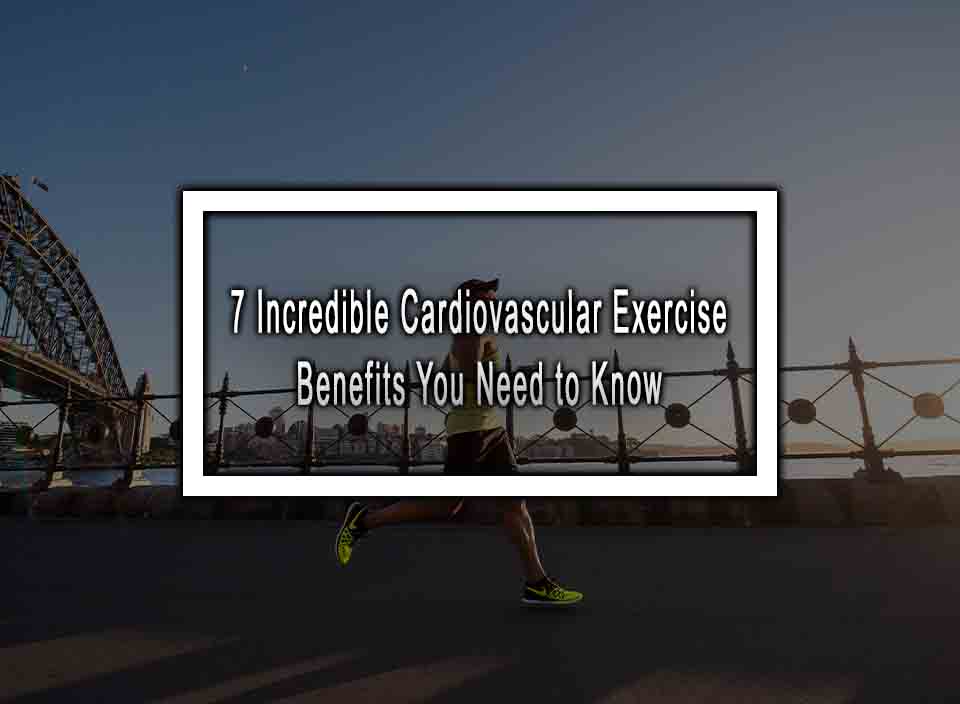Table of Contents
ToggleThe Benefits of Cardiovascular Exercise
Cardiovascular exercise, also known as cardio, is any type of exercise that increases your heart rate and gets your blood pumping. There are countless benefits to incorporating cardio into your fitness routine, including improved heart health, weight management, and increased endurance. In this listicle, we’ve compiled seven incredible cardiovascular exercise benefits that will make you want to lace up your sneakers and get moving!
1. Improved Heart Health
Cardiovascular exercise is great for your heart health because it strengthens your heart and reduces your risk of heart disease. When you engage in cardio activities like running, biking, or swimming, you increase the amount of oxygen your heart needs to pump to your muscles. Over time, this improves your heart’s ability to efficiently circulate oxygen-rich blood throughout your body.
2. Weight Management
Cardiovascular exercise is an effective way to manage your weight because it burns calories and helps you maintain healthy body composition. By regularly engaging in cardio activities, you can maintain a healthy weight, reduce body fat, and increase muscle mass.
3. Increased Endurance
Cardiovascular exercise is also great for increasing your endurance. By regularly engaging in cardio activities, such as running or swimming, you can improve your cardiovascular capacity and overall fitness level. This means you’ll be able to exercise longer and harder without feeling fatigued or out of breath.
4. Stress Reduction
Cardiovascular exercise is an excellent way to reduce stress and improve mental health. When you exercise, your brain releases endorphins, which are natural mood boosters that help alleviate stress and anxiety.
5. Improved Sleep Quality
Cardiovascular exercise is also great for improving sleep quality. Regular exercise can help regulate your sleep-wake cycle and promote deeper, more restful sleep. In addition, cardio can help reduce sleep-related disorders like sleep apnea.
6. Increased Energy Levels
Cardiovascular exercise can also boost your energy levels. When you engage in cardio activities, your body releases adrenaline and other hormones that increase your heart rate and energy levels. Over time, regular cardio exercise can improve your overall energy levels and reduce feelings of fatigue.
7. Improved Brain Function
Finally, cardio exercise is great for improving brain function. Regular exercise can improve cognitive function, and memory, and even reduce the risk of age-related cognitive decline and dementia.
Conclusion
Regular cardio exercise is one of the best things you can do for your physical and mental health. From improving heart health to reducing stress and improving sleep quality, the benefits of cardio exercise are endless. Whether you prefer running, cycling, swimming, or dancing, find a cardio activity that you enjoy and make it a regular part of your fitness routine. Your body and your mind will thank you!
Cardiovascular Exercise FAQ
Here are the most common questions about cardiovascular exercise.
How often should I do cardio exercise?
It is recommended to do at least 150 minutes of moderate-intensity or 75 minutes of vigorous-intensity cardiovascular exercise per week. This can be broken down into 30-minute sessions five times a week or 15-minute sessions ten times a week.
What is the difference between moderate-intensity and vigorous-intensity cardiovascular exercise?
Moderate-intensity cardio exercise is any activity that raises your heart rate and breathing rate, but you are still able to carry on a conversation. Examples include brisk walking and cycling. Vigorous-intensity cardiovascular exercise is any activity that raises your heart rate and breathing rate significantly, making it difficult to carry on a conversation. Examples include running and swimming laps.
Can I do cardiovascular exercise if I have joint problems?
Yes, there are low-impact forms of cardiovascular exercise that can be beneficial for people with joint problems. Examples include swimming, cycling, and using an elliptical machine.
What should I eat before and after cardio exercise?
Before exercise, it is recommended to eat a small meal that is high in carbohydrates and low in fat and fiber, such as a banana or a granola bar. After exercise, it is recommended to eat protein and carbohydrates to help with muscle recovery, such as a protein shake or a small meal with chicken and rice.












